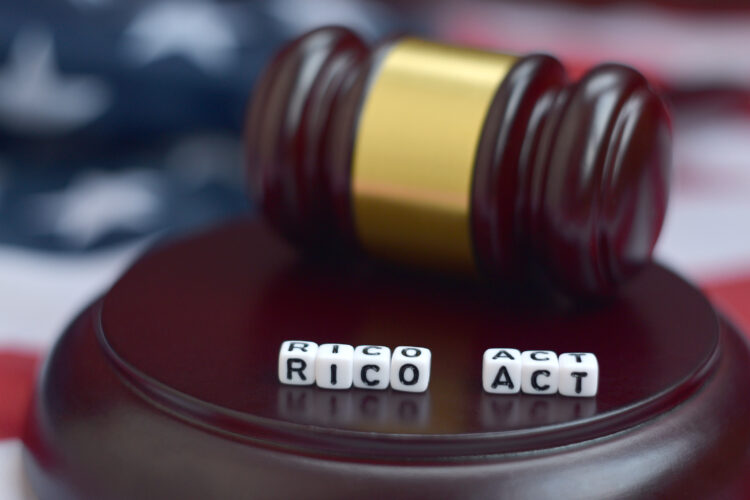July 5, 2022
The Racketeer Influenced and Corrupt Organization Act – or RICO as it is more commonly referred to – was enacted by the federal government in 1970 to combat and indeed eradicate Mafia-style organized crime in the United States. While the federal RICO law may bring to mind images of John Gotti and The Sopranos, it is a statute that has been used to pursue legal actions against individuals and entities such as healthcare companies, police departments, and even sports leagues.
Following the passage of the federal RICO law, a number of states have passed their own RICO statutes. One of the most prominent state RICO statutes is that of California, which passed its own RICO statute entitled the California Control of Profits of Organized Crime Act. Accordingly, federal prosecutors pursue charges against individuals and business pursuant to the federal RICO statute and California state prosecutors pursue charges pursuant to the California Control of Profits of Organized Crime Act.
Both the federal and California RICO statutes work in similar ways: prosecutors can pursue charges of racketeering against those involved in a pattern of criminal behavior – with the racketeering or “criminal profiteering activity” charges being in addition to any charges for underlying criminal activities – and the government can require that defendants forfeit assets to the government prior to a finding of guilt.
Private plaintiffs can also pursue civil RICO claims against defendants they allege to be involved in a pattern of criminal activity, and, like in criminal lawsuits, can pursue treble damages and other penalties against defendants.
Contact our office today to speak with an attorney.
Racketeering & The RICO Act
Again, the federal RICO act was originally developed to eradicate Mafia-type organized crime by targeting any member of an enterprise engaged in a pattern of criminal activities, and to target the ill-gotten gains of such a criminal enterprise. In subsequent years, the spectrum of defendants facing civil and criminal RICO lawsuits has grown dramatically, and while gangs and Mafia-style organizations are still targeted by RICO proceedings, many individuals and businesses in what otherwise may appear to be legitimate business pursuits may find themselves subject to RICO claims (often predicated on such claims of criminal activity such as wire fraud or mail fraud), with the possibility of the forfeiture of assets and other steep civil and criminal penalties. In a federal RICO claim, the prosecutor or plaintiff must show a pattern of racketeering activity including at least two racketeering acts within a ten-year period. Such acts could include:- Embezzlement
- Bribery
- Illegal gambling
- Bankruptcy fraud
- Securities fraud
- Money laundering
- Obstruction of justice
- Counterfeiting or illegal copyright infringement
- Mail or wire fraud
- Illegal interference with commerce
How Does a RICO charge work
To pursue a successful federal RICO claim, the government (or a private plaintiff) must prove that:- An “enterprise” existed
- The enterprise affected interstate commerce
- That the defendant was associated with or employed by the enterprise
- That the defendant engaged in a pattern of racketeering activity posing a threat of continued criminal activity, and
- That the defendant conducted or participated in the conduct of the enterprise through that pattern of racketeering activity through the commission of at least two acts of racketeering activity

